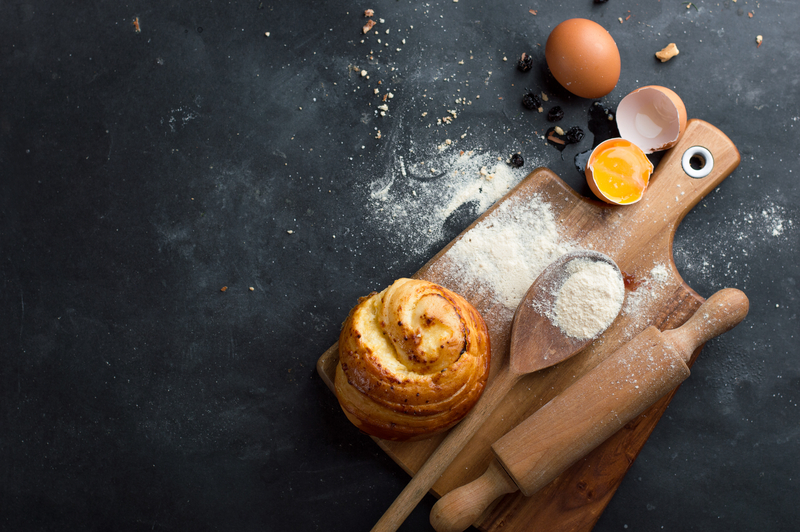 Baking is often considered both an art and a science, requiring a delicate balance of ingredients, techniques, and precise conditions.
Baking is often considered both an art and a science, requiring a delicate balance of ingredients, techniques, and precise conditions.
Whether you’re a seasoned baker or a novice in the kitchen, understanding the key factors that influence the baking process is crucial for achieving the perfect loaf of bread, a batch of decadent cookies, or a beautifully risen cake.
In this article, we’ll delve into the five fundamental elements that significantly impact the outcome of your baking endeavors.
-
Ingredients Quality and Quantity
A triumphant baking experience hinges on the meticulous selection and measurement of ingredients.
Flour, sugar, eggs, leavening agents, and fats collectively sculpt the texture, flavor, and structure of the ultimate creation.
Elevating baked goods to unparalleled heights involves embracing freshness and quality, whether it’s opting for high-grade flour or incorporating fresh eggs.
The precision of measurements becomes a linchpin, as even subtle variations wield the power to sway the end result significantly.
Bakers navigate a realm of exactitude, adhering to precise ratios that orchestrate the chemical reactions imperative for impeccable rising and texture development.
In the realm of baking mastery, the marriage of quality, quantity, and precision dances harmoniously to produce consistently sublime delights.
-
Temperature Control

Temperature proves non-negotiable in the intricate realm of baking, exerting its influence both within the ingredients and the baking environment.
The marriage of butter and eggs at room temperature becomes a culinary ballet, seamlessly integrating into batters, birthing a velvety texture that dances on the palate.
Yet, the oven itself plays a pivotal role, and the stakes are high – an improperly calibrated oven can turn a potential masterpiece into a culinary mishap, leaving your creations either undercooked or overly charred.
Enter the savior: the oven thermometer, a knight in shining armor for the discerning baker.
Investing in this humble yet transformative tool ensures an accurate gauge of the baking environment, a sentinel against the perils of temperature inconsistencies.
Armed with this ally, and with due diligence in adhering to temperature guidelines within recipes, the success of your baking odyssey stands on the brink of a substantial and flavorful triumph.
-
Mixing Techniques
In the intricate dance of baking, the manner in which ingredients unite, and the sequence of their fusion weave the very fabric of your baked delights.
A delicate balance must be struck, for overmixing and undermixing loom as formidable foes, capable of tarnishing the potential splendor.
Picture this: an overmixed concoction, a realm where excessive gluten development reigns supreme, rendering cakes and cookies not as tender delights but as challengingly tough adversaries to the tooth.
Conversely, undermixing takes on the guise of a stealthy saboteur, leaving pockets of unmixed elements clandestinely lurking within the batter, a betrayal to the pursuit of uniform consistency.
The baker, akin to a maestro orchestrating a symphony, must discern the opportune moment for the dance of ingredients – a gentle fold, a purposeful stir, or a vigorous beat.
This nuanced understanding of when to employ each technique emerges as the linchpin for achieving the coveted texture and harmonious balance that transform a humble mixture into a delectable masterpiece.
-
Leavening Agents
 In the alchemical process of baking, leavening agents emerge as the mystical catalysts, wielding the power to orchestrate the rise and ethereal fluffiness inherent in our cherished baked creations.
In the alchemical process of baking, leavening agents emerge as the mystical catalysts, wielding the power to orchestrate the rise and ethereal fluffiness inherent in our cherished baked creations.
These enchanting agents, embodied by the likes of baking powder and baking soda, demand a profound understanding and mastery of their unique activation mechanisms.
Behold the enigma: baking soda, a dormant force awaiting an acidic partner to awaken its leavening prowess.
On the other side of this culinary sorcery, baking powder emerges as a versatile magician, boasting both an acid and a base within its alchemical repertoire, rendering it suitable for recipes devoid of acidic components.
The wizardry lies in the delicate dance of selecting the right leavening agent in the precise quantity, an incantation whispered by the culinary adept.
This incantation, when executed with finesse, ensures the grand spectacle of proper batter or dough expansion during the sacred ritual of baking, culminating in the divine revelation of a lusciously light and airy texture – the hallmark of a baking spell cast successfully.
-
Baking Time


 Baking is a delightful and rewarding culinary adventure that demands attention to detail and a deep understanding of its core principles.
Baking is a delightful and rewarding culinary adventure that demands attention to detail and a deep understanding of its core principles. 